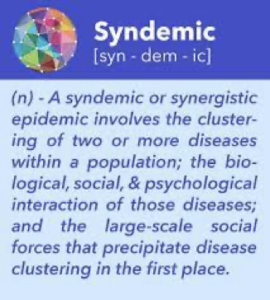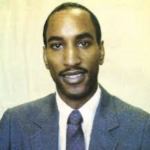I had a difficult if not contentious relationship with Larry Kramer. His last words to me were “fuck you.” I carry them as a badge of honor. As a leader in the fight to end the HIV epidemic, my job is to speak out against injustice and to fight for the communities hardest hit by HIV. I hope I can make Larry proud as we move to the next critical phase of our work, but I doubt it.
What does leadership look like as we fight to end the HIV epidemic by 2030 while also learning to live with COVID? Obviously, we all play different roles. Federal leaders and health departments face internal restrictions that are not the same for community. Community leaders have a responsibility to tell their truth because not everyone gets invited to the table. I always tell my staff that, when they get invited, they must speak-up, not with their voice, but with the voice of community.

Last week I got an invite from Dr. Laura Cheever, the administrator of HRSA/HAB, to talk about HRSA’s plans to end the HIV epidemic. That is leadership: to reach out to community before they ask for a meeting. To all the health departments and federal leaders, community expects to be at the table and part of the solution. We want our input to be valued and acted upon. Too often community is seen as an afterthought, something to be managed. Believe it or not, we can tell the difference. Thank you, Dr. Cheever.
I also want to thank Rita Harcrow from HOPWA/HUD for taking the time to discuss their EHE efforts. As I mentioned, NMAC was really pleased that HUD was at the table. We believe housing is core to our efforts to end the HIV epidemic. Our ability to safely house and provide quality medical care and mental health services PWHs is key to our EHE efforts. Along those lines, we hope that HOPWA/HUD, SAMHSA, and HRSA/HAB will consider collaborative funding arrangements so these services can be better integrated.
 We remind our federal partners that we are looking for syndemic solutions. Our vision is to end the HIV, STD, and Hepatitis epidemics. That requires collaboration across federal departments and agencies at a level that is unprecedented. Some of you are working together, but there are key players missing. Isolation that leads to depression means that mental health services are essential for many people living with HIV. How will plans incorporate this essential service? Agency plans are due to the White House sometime in March. Now is the time to speak up.
We remind our federal partners that we are looking for syndemic solutions. Our vision is to end the HIV, STD, and Hepatitis epidemics. That requires collaboration across federal departments and agencies at a level that is unprecedented. Some of you are working together, but there are key players missing. Isolation that leads to depression means that mental health services are essential for many people living with HIV. How will plans incorporate this essential service? Agency plans are due to the White House sometime in March. Now is the time to speak up.
It’s more than being invited to the table. We also want to see community in senior leadership positions. Too frequently there is diverse community representation, except for the government employees. While I am very grateful to Dr. Levine, how many transgender leaders hold government jobs? How many people living with HIV? How many people from the communities hardest hit by HIV? From my experience, way too few. It is not a matter of affirmative action; it is the understanding that representation matters.
 The main difference between me and Larry is how we approached these inequities. Larry hated injustice. He hated a world that treated him like a second-class citizen. His anger was his motivation to change the world. For me it’s about love. I love my constituents. I love people living with HIV. I love people who take the risks to be their true selves despite what society tells them. They are my motivation to fight. They are the reason I’m still here after all these years. The privilege of getting old is you don’t care anymore what people think of you. I have earned the right to say some difficult things and like NMAC’s founding board chair Craig Harris said in 1986 at the closing APHA plenary on AIDS, “I will be heard.”
The main difference between me and Larry is how we approached these inequities. Larry hated injustice. He hated a world that treated him like a second-class citizen. His anger was his motivation to change the world. For me it’s about love. I love my constituents. I love people living with HIV. I love people who take the risks to be their true selves despite what society tells them. They are my motivation to fight. They are the reason I’m still here after all these years. The privilege of getting old is you don’t care anymore what people think of you. I have earned the right to say some difficult things and like NMAC’s founding board chair Craig Harris said in 1986 at the closing APHA plenary on AIDS, “I will be heard.”
Yours in the Struggle,
Paul Kawata
NMAC

